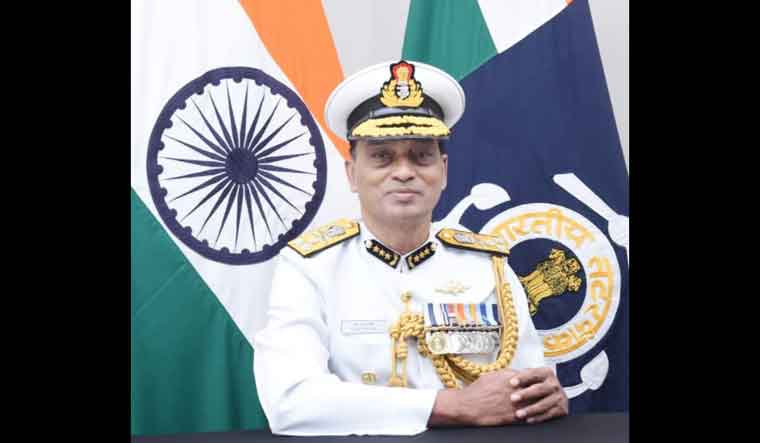The central government is in a quandary over announcing the name of the next chief of Indian Coast Guards after one of the key contenders for the post has moved the Delhi High Court challenging the latest promotion policy of the Ministry of Defence. And in response to the petition, the high court has stated that promotion, if any made, shall be subject to further orders to be passed by the Delhi High Court.
Current Director-General G.K. Natarajan is retiring on December 31. And after retirement, Natarajan is set to take up the international assignment of executive director of the Regional Cooperation Agreement on Combating Piracy and Armed Robbery against Ships in Asia (ReCAAP) Information Sharing Centre, Singapore.
The ministry of defence is learned to have recommended a panel of shortlisted officers to the Appointments Committee of Cabinet to take the final decision. But, the government seems to be cautious over announcing the name, as it may lead to an embarrassment if the court over-rules the appointment.
Two Additional Director General-level rank officers are in the race for the appointment—Rajan Bargotra, chief of the Western Seaboard, and D.S. Pathania, Additional Director General (ADG) at the headquarters in New Delhi. And Bargotra has challenged the new promotion policy, which makes it mandatory to consider annual confidential reports (ACR) of the previous five years of a candidate for promotion in the Indian Coast Guard. Thus, to fill a vacancy this year, the candidate's ACRs of 2018, 2017, 2016, 2015 and 2014 would be scrutinised by the promotion panel. The new policy made it mandatory to follow the Department of Personnel and Training (DoP&T) guidelines for all future Departmental Promotion Committees (DPC). Interestingly, the new policy came at a time when the Departmental Promotion Committee headed by the defence secretary was in the process to finalise the next chief of the Indian Coast Guard.
The ministry of defence on behalf of the Indian Coast Guard has submitted a reply in the court claiming that the new policy for promotion is being followed "to bring uniformity in the all the central armed police forces (CAPFs), which are also armed forces of the union like the Coast Guard". But, incidentally, the Indian Coast Guard in another matter in Madras High Court early this year has stated that "its (Indian Coast Guard) functioning and working condition, being a maritime force are different than that of the central armed police forces (CAPFs)". Challenging the MoD policy in the HC, Bargotra stated that the Indian Coast Guard has its procedure and rules, policies and guidelines for promotion and does not follow the DoP&T guidelines. Indian Coast Guard follows rules akin to the Indian Navy.
"Two different stands on promotion policy by the Indian Coast Guard has complicated the selection," said a senior defence ministry official.
Recently, the defence ministry had conducted an inquiry into allegations of discrepancies in the appointment of top Coast Guard officers and learnt that alterations were made in ACRs against the norm and certain records were also missing. It was believed that discrepancies were raised in the promotion board for an ADG-level posting, which is the second-highest in the Indian Coast Guard. And early this month, a Director Inspector General of the Indian Coast Guard senior armed forces officer has filed a complaint to the National Commission for Scheduled Castes alleging caste prejudice by his seniors, which was intended to prevent his career progression. He has alleged that his grading was misrepresented, denying him a timely promotion and resulting in a downgrade of seniority.





